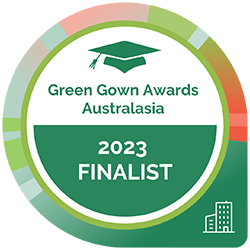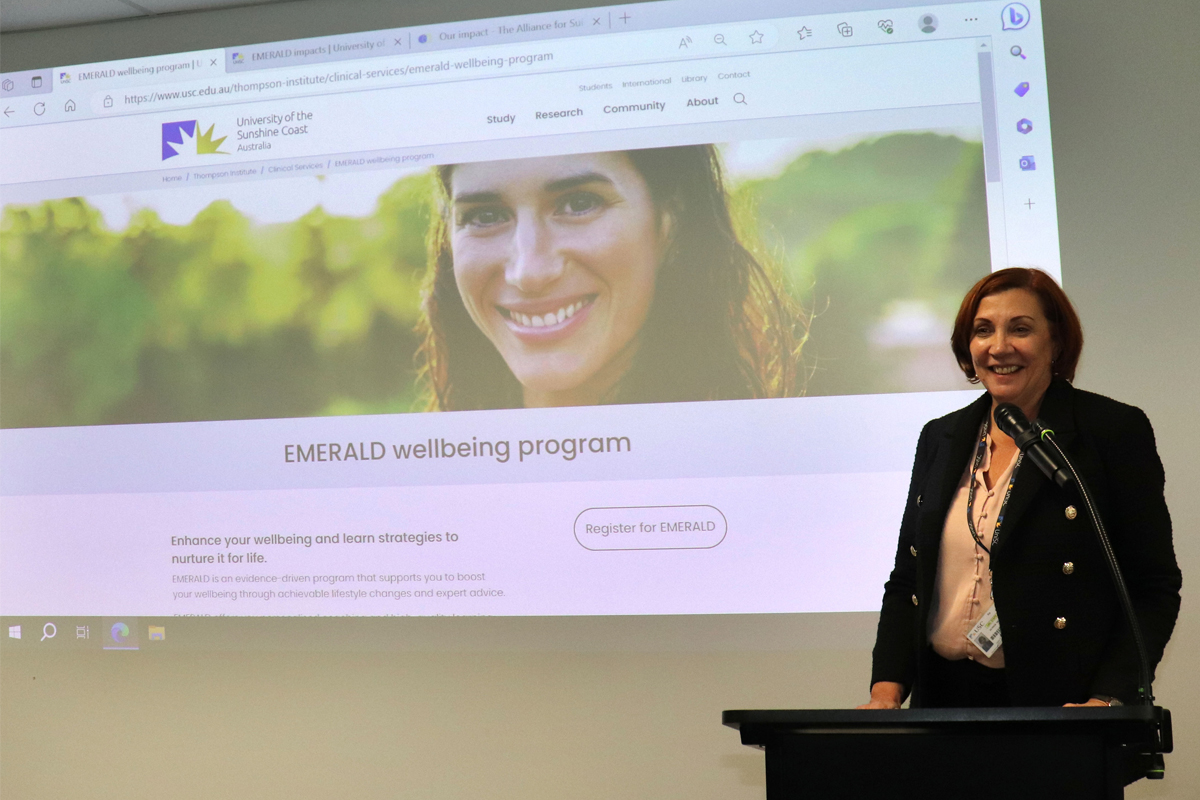Benefitting Society category
Sustainability in entrepreneurship is much more than just a few entrepreneurs focused on sustainability-focused issues.
What if entrepreneurship were a way to generate new paid jobs for over 1,000 people in just two years from a single university?
What if this kind of entrepreneurship were available to everyone, without relying on access to capital, professional networks, educational background, or many of the things typically associated with tech entrepreneurship?
As technology improves, transaction costs decline, and the required size of organisations decreases.
We are seeing this today, with record numbers of company registrations, along with record high desire to pursue entrepreneurship (57% of incoming undergraduate UTS students last year) and record numbers of graduates leaving with their own startups (9.4% of undergrad, postgrad and PhDs graduating last year).
So with more need, opportunity and desire to pursue the kinds of entrepreneurship that technology enables, what role should a university have in helping find sustainable pathways?
Venture Capital models would encourage high-risk, high-reward pursuit for an elite few, which makes sense for the portfolio return, but leaves 99%+ of entrepreneurs with poor outcomes, and 1% having the burden of paying for the failed investments.
In UTS Startups we believe there is a better way to sustainably support technology-enabled entrepreneurship, driving self-employment and impact at scale, but it relies on three key principles:
- Identifying appropriate role-models with commonly-available enablers. Basically understanding the kind of entrepreneurial “crop” that can be demonstrated to grow in your economic climate, and with inputs that are readily available.
- Role-modelling of these appropriate crops to people at key decision-making points in their lives, especially year 9 and 10 of school, at university and at graduation, so they begin their journey knowing what they need to do, and what they’re likely to achieve as a result.
- Providing free support for these startups at scale, in the form of very large scale sharing of capabilities between startups, responding to and supporting the diversity of pursuit that embodies true entrepreneurship.
We don’t celebrate failure. We don’t encourage dreaming big, unless they recognise the chances of success.We just give thousands of people examples of people like themselves, doing things they can do, and getting results they want to get. We then surround those new entrepreneurs with a diverse range of people, in a nurturing environment where our key focus is sharing capability between our entrepreneurs. We work to inject key resources like connections to investors, customers, facilities and talent, including a large scale work-integrated-learning program that placed 950 students into our startups last year alone through internships and in-subject projects.
Our entrepreneurs are pursuing pathways they’ve seen to work for people like themselves, alongside diverse people they can share capabilities with, and their combined success is generating new kinds of sustainability.
In particular:
Improved work opportunities, especially for people without access to (or desire for) traditional forms of employment. Our startups reported 572 new paid positions last year, and 420 the year before.
New companies are being built without the constraint of existing business structures, enabling not just new products and services that make sense today, but also new ways of doing things that make sense today.
Learning spillovers into existing larger companies, with skills being built in real-world scenarios with new technologies that are valued and beneficial to incumbent companies, if people are ever to seek employment from them.
Lastly we’re also pleased to see younger entrepreneurs incorporating sustainability concerns of every type into their impact and their approach to building their companies. They often don’t need to be taught any of this, they’re natives to a world with today’s problems, and they seem driven to solve them when given any opportunity to do so.
Two recent examples include Bearhub pallet wraps – reusable wrapping for haulage pallets to replace single-use plastic wrapping used ubiquitously around the globe. And Refilled vending machines with refillable BYO soft drinks, avoiding single-use plastic bottles sold in their billions around the world. More on these two projects, and others, later in this nomination.
But these are just two examples of over 1,000 startups started in our five years of operation, and the real story is the number of people from all kinds of backgrounds that are now empowered to create their own jobs through technology-enabled entrepreneurship.
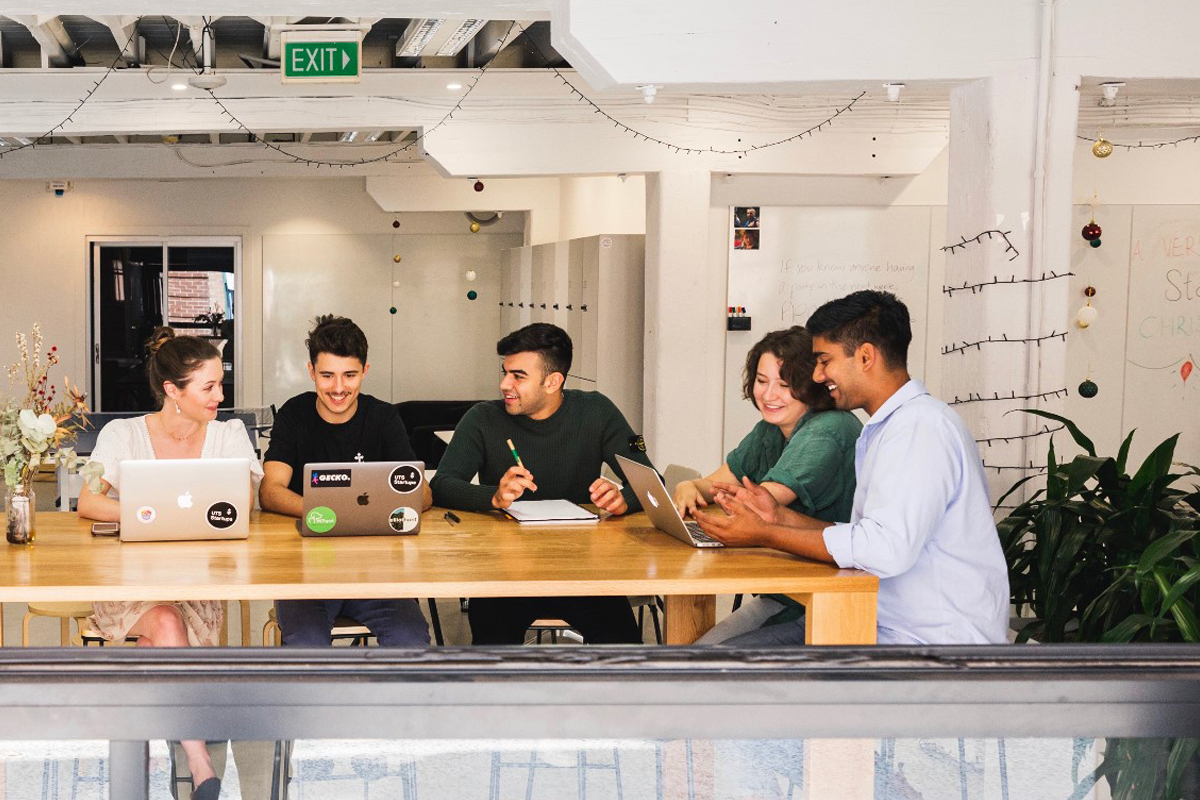
Environmental and social benefits
Because we design for broad audiences, and can choose the audiences we engage with, we’re able to then optimise for achieving socioeconomic inclusivity in the design of our programming.
For example, choosing the schools we visit so we can over-index on low-SES and female-focused schools, reaching 74% female students in our first year of the UTS Startups @ School programming.
At a broader level, the social outcomes from generating employment in these demographics is obvious and critical, but we feel it also critical to the future relevance of higher education.
Universities can’t just create job-ready graduates and impact-generating research, they need to be creating the entrepreneurs that provide those jobs, and disseminate those new ways of doing things, and they need to do it in large numbers for the people that need the help the most.
UTS (proudly) doesn’t have an undergraduate entrepreneurship offering, and while we do ask for at least one team member in each startup we support to have a current or past UTS student on the team, the vast majority of people we support are not UTS students, and they’re also often not university graduates, increasing access to education.
Again the real impact is across the thousands of people who have access to better outcomes because of the free support provided, but there is a wealth of individual examples of impact from the startups being created.
2022 UTS Startups award winers include Bearhug pallet wraps, the world’s first reusable pallet wrap. Australia uses approximately 100,000 tonnes of ‘disposable’ single-use plastic pallet wrapping every year. Much of this goes to landfill. Plastic waste and single-use plastics are a huge global problem. Bearhug provides a sustainable re-usable alternative that can be reused approximately 1000 times, meaning each bearhug wrap avoids around 350kg of plastic waste.
Refilled vending machines also address the plastic waste problem. With approximately 1 billion plastic drink bottles used in Australia every year, and less than 40% recycled, plastic bottle waste is a massive environmental problem. While tap water offers an easy and effective alternative to bottled water, until now there has been no direct alternaive for soft drinks. Enter Refilled. Refilled vending machines enable users to choose from a selection of sparkling drinks using their own refillable bottle. Refilled vending machines are now installed at varous corporate locations around Sydney, including on the UTS campus. Refilled are on a misson to eliminate 100 million single use drink bottles by 2030.
Salvge is a fashion label that uses native Australian plants and food waste to dye clothing, eliminating the negative impact of synthetic dyes.
Leadership and engagement
Almost all entrepreneurial support in universities consists of exclusive accelerator programs with competitive entry, or curriculum-based programs that require enrolment. These approaches also only respond to people who already want to pursue entrepreneurship.
UTS Startups is differentiated in being able to choose the audiences we engage with, and designing so that we can engage at scale with people who don’t currently see entrepreneurship as normal, desirable or accessible.
This differentiated approach has enabled us to create very large numbers of new technology-enabled companies, with a unique diversity of demographics involved, and (we believe) the most notable new job creation ever seen in an Australian entrepreneurship program.
Significance to the sector
Again the distinctiveness of this proposal comes from the scale of effort and how it is directed towards people that would otherwise not be able to benefit from the opportunity in technology-enabled entrepreneurship, or access to higher education.
Wider societal impact
We are driving socioeconomic inclusion through job creation, via technology-enabled entrepreneurship, at a scale that hasn’t been seen before.
In the last two years alone, over 1,000 people have paid jobs because of the work of UTS Startups.
Not only that, but the 630 startups we’re currently supporting are each developing and providing something of value to the world, whether it’s new solutions or products, new ways of doing things, or just challenging the status quo in their own special way.
Further, we are challenging other higher education providers to keep up in terms of the accessibility and impact of their own entrepreneurial support, potentially multiplying our impact many times.
We hope to put Australia’s education sector on the map not just for what we’re traditionally recognised for, but soon for a globally-differentiated approach to inclusive and impactful entrepreneurial support.
Learner/Graduate employer impact
Last year alone, 950 students worked with our startups via internships and in-subject projects. The vast majority of these won’t end up working in a startup, but all will benefit in their experience of using emerging technologies and being adaptable and resourceful in the way that is needed within a startup – boosting future employment prospects.
A deeper level of experience is enabled for the entrepreneurs behind our startups, who experience the full gamut of responsibilities that entrepreneurs need to deal with, building resilience and (we think) desirability to potential employers.
The people in our startups aren’t just job-ready, they’re market-ready from direct engagement in the markets they’ve addressed. They haven’t been buried in the back of a large organisation.
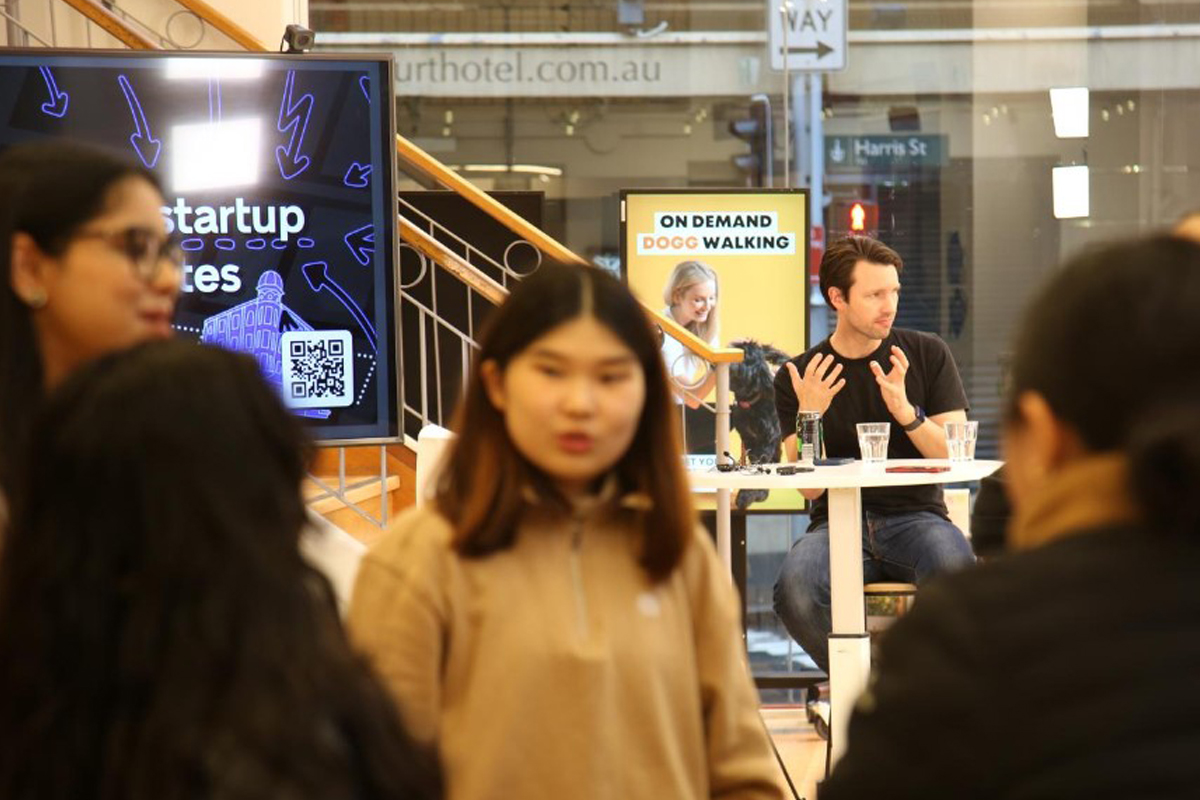
Top 3 learnings
Related finalists
Benefitting Society/Winners
Benefitting Society/Winners
Benefitting Society
Benefitting Society
Other finalists
Climate Action
Climate Action
Sustainability Champion – Staff/Winners
Sustainability Champion – Staff/Winners
Student Engagement
Student Engagement
Creating Impact
Creating Impact
Sustainability Champion – Staff/Winners
Sustainability Champion – Staff/Winners
Sustainability Champion – Student
Sustainability Champion – Student
Top 3 learnings
Benefitting Society category
Sustainability in entrepreneurship is much more than just a few entrepreneurs focused on sustainability-focused issues.
What if entrepreneurship were a way to generate new paid jobs for over 1,000 people in just two years from a single university?
What if this kind of entrepreneurship were available to everyone, without relying on access to capital, professional networks, educational background, or many of the things typically associated with tech entrepreneurship?
As technology improves, transaction costs decline, and the required size of organisations decreases.
We are seeing this today, with record numbers of company registrations, along with record high desire to pursue entrepreneurship (57% of incoming undergraduate UTS students last year) and record numbers of graduates leaving with their own startups (9.4% of undergrad, postgrad and PhDs graduating last year).
So with more need, opportunity and desire to pursue the kinds of entrepreneurship that technology enables, what role should a university have in helping find sustainable pathways?
Venture Capital models would encourage high-risk, high-reward pursuit for an elite few, which makes sense for the portfolio return, but leaves 99%+ of entrepreneurs with poor outcomes, and 1% having the burden of paying for the failed investments.
In UTS Startups we believe there is a better way to sustainably support technology-enabled entrepreneurship, driving self-employment and impact at scale, but it relies on three key principles:
- Identifying appropriate role-models with commonly-available enablers. Basically understanding the kind of entrepreneurial “crop” that can be demonstrated to grow in your economic climate, and with inputs that are readily available.
- Role-modelling of these appropriate crops to people at key decision-making points in their lives, especially year 9 and 10 of school, at university and at graduation, so they begin their journey knowing what they need to do, and what they’re likely to achieve as a result.
- Providing free support for these startups at scale, in the form of very large scale sharing of capabilities between startups, responding to and supporting the diversity of pursuit that embodies true entrepreneurship.
We don’t celebrate failure. We don’t encourage dreaming big, unless they recognise the chances of success.We just give thousands of people examples of people like themselves, doing things they can do, and getting results they want to get. We then surround those new entrepreneurs with a diverse range of people, in a nurturing environment where our key focus is sharing capability between our entrepreneurs. We work to inject key resources like connections to investors, customers, facilities and talent, including a large scale work-integrated-learning program that placed 950 students into our startups last year alone through internships and in-subject projects.
Our entrepreneurs are pursuing pathways they’ve seen to work for people like themselves, alongside diverse people they can share capabilities with, and their combined success is generating new kinds of sustainability.
In particular:
Improved work opportunities, especially for people without access to (or desire for) traditional forms of employment. Our startups reported 572 new paid positions last year, and 420 the year before.
New companies are being built without the constraint of existing business structures, enabling not just new products and services that make sense today, but also new ways of doing things that make sense today.
Learning spillovers into existing larger companies, with skills being built in real-world scenarios with new technologies that are valued and beneficial to incumbent companies, if people are ever to seek employment from them.
Lastly we’re also pleased to see younger entrepreneurs incorporating sustainability concerns of every type into their impact and their approach to building their companies. They often don’t need to be taught any of this, they’re natives to a world with today’s problems, and they seem driven to solve them when given any opportunity to do so.
Two recent examples include Bearhub pallet wraps – reusable wrapping for haulage pallets to replace single-use plastic wrapping used ubiquitously around the globe. And Refilled vending machines with refillable BYO soft drinks, avoiding single-use plastic bottles sold in their billions around the world. More on these two projects, and others, later in this nomination.
But these are just two examples of over 1,000 startups started in our five years of operation, and the real story is the number of people from all kinds of backgrounds that are now empowered to create their own jobs through technology-enabled entrepreneurship.

Environmental and social benefits
Because we design for broad audiences, and can choose the audiences we engage with, we’re able to then optimise for achieving socioeconomic inclusivity in the design of our programming.
For example, choosing the schools we visit so we can over-index on low-SES and female-focused schools, reaching 74% female students in our first year of the UTS Startups @ School programming.
At a broader level, the social outcomes from generating employment in these demographics is obvious and critical, but we feel it also critical to the future relevance of higher education.
Universities can’t just create job-ready graduates and impact-generating research, they need to be creating the entrepreneurs that provide those jobs, and disseminate those new ways of doing things, and they need to do it in large numbers for the people that need the help the most.
UTS (proudly) doesn’t have an undergraduate entrepreneurship offering, and while we do ask for at least one team member in each startup we support to have a current or past UTS student on the team, the vast majority of people we support are not UTS students, and they’re also often not university graduates, increasing access to education.
Again the real impact is across the thousands of people who have access to better outcomes because of the free support provided, but there is a wealth of individual examples of impact from the startups being created.
2022 UTS Startups award winers include Bearhug pallet wraps, the world’s first reusable pallet wrap. Australia uses approximately 100,000 tonnes of ‘disposable’ single-use plastic pallet wrapping every year. Much of this goes to landfill. Plastic waste and single-use plastics are a huge global problem. Bearhug provides a sustainable re-usable alternative that can be reused approximately 1000 times, meaning each bearhug wrap avoids around 350kg of plastic waste.
Refilled vending machines also address the plastic waste problem. With approximately 1 billion plastic drink bottles used in Australia every year, and less than 40% recycled, plastic bottle waste is a massive environmental problem. While tap water offers an easy and effective alternative to bottled water, until now there has been no direct alternaive for soft drinks. Enter Refilled. Refilled vending machines enable users to choose from a selection of sparkling drinks using their own refillable bottle. Refilled vending machines are now installed at varous corporate locations around Sydney, including on the UTS campus. Refilled are on a misson to eliminate 100 million single use drink bottles by 2030.
Salvge is a fashion label that uses native Australian plants and food waste to dye clothing, eliminating the negative impact of synthetic dyes.
Leadership and engagement
Almost all entrepreneurial support in universities consists of exclusive accelerator programs with competitive entry, or curriculum-based programs that require enrolment. These approaches also only respond to people who already want to pursue entrepreneurship.
UTS Startups is differentiated in being able to choose the audiences we engage with, and designing so that we can engage at scale with people who don’t currently see entrepreneurship as normal, desirable or accessible.
This differentiated approach has enabled us to create very large numbers of new technology-enabled companies, with a unique diversity of demographics involved, and (we believe) the most notable new job creation ever seen in an Australian entrepreneurship program.
Significance to the sector
Again the distinctiveness of this proposal comes from the scale of effort and how it is directed towards people that would otherwise not be able to benefit from the opportunity in technology-enabled entrepreneurship, or access to higher education.
Wider societal impact
We are driving socioeconomic inclusion through job creation, via technology-enabled entrepreneurship, at a scale that hasn’t been seen before.
In the last two years alone, over 1,000 people have paid jobs because of the work of UTS Startups.
Not only that, but the 630 startups we’re currently supporting are each developing and providing something of value to the world, whether it’s new solutions or products, new ways of doing things, or just challenging the status quo in their own special way.
Further, we are challenging other higher education providers to keep up in terms of the accessibility and impact of their own entrepreneurial support, potentially multiplying our impact many times.
We hope to put Australia’s education sector on the map not just for what we’re traditionally recognised for, but soon for a globally-differentiated approach to inclusive and impactful entrepreneurial support.
Learner/Graduate employer impact
Last year alone, 950 students worked with our startups via internships and in-subject projects. The vast majority of these won’t end up working in a startup, but all will benefit in their experience of using emerging technologies and being adaptable and resourceful in the way that is needed within a startup – boosting future employment prospects.
A deeper level of experience is enabled for the entrepreneurs behind our startups, who experience the full gamut of responsibilities that entrepreneurs need to deal with, building resilience and (we think) desirability to potential employers.
The people in our startups aren’t just job-ready, they’re market-ready from direct engagement in the markets they’ve addressed. They haven’t been buried in the back of a large organisation.

Related finalists
Benefitting Society/Winners
Benefitting Society/Winners
Benefitting Society
Benefitting Society
Other finalists
Climate Action


Driving Towards Tomorrow’s Campus with Vehicle-to-Grid EV Technology
As part of Flinders University’s drive to innovate and become a leader in climate action, the University launched its Vehicle-to-Grid (V2G) initiative. This involved installing and maintaining 20x V2G and smart chargers for its growing electric vehicle fleet. Leveraging 100% renewable energy generated by ENGIE’s Willogoleche Wind Farm and Flinders University’s solar power systems, this enables the storage of renewable energy in EV batteries to be discharged on campus during peak demand periods. Hence, allows for these EV fleets to operate as a Virtual Power Plant (VPP) to deliver peak demand management and optimization of behind-the-meter generation.
Overall, this initiative demonstrates the reliability and scalability of bi-directional and uni-directional smart-charging systems for EVs in reducing GHG emissions while facilitating teaching, research, and innovation opportunities. Moreover, it exemplifies a sustainable and innovative solution to scale energy storage technology and increase renewables.
Sustainability Champion – Staff/Winners

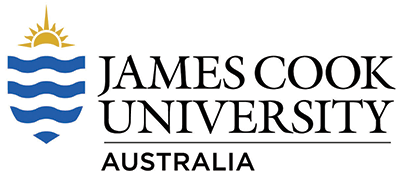
Brandan Espe
Environmental Officer / Acting Grounds Supervisor
Brandan has brought over 50 federally listed Endangered species of plant into the James Cook University living collection, many of which have never been cultivated and are found in no other collection in the world.
Of these, over half have been sustainably wild collected, inclusive of field and clone data, so they can be used for ongoing conservation, research and teaching, the remaining being sourced from private and partner organisations through favours of service or trades.
He personally funded the project from 2019-2022, until funding was awarded for the program due to its success, with the program now being engrained into the Universities landscapes for ongoing management should he leave JCU, creating a threatened species legacy collection.
The program has now expanded beyond this, with an additional 48 species now funded for further addition, some of which are only known from less than 5 sightings in history.
Student Engagement


Sustainability Leaders creating real impact!
La Trobe created a unique Sustainability Leaders volunteering program to increase engagement with students on campus and empower them to act against waste and promote sustainability. It included the following initiatives:
- Promoting the reusable crockery implementation,
- Increasing knowledge action of other students on campus to diversion comingled recycling and organic waste from landfill.
- Focus on waste audits and data,
- Improved signage through new waste posters for students living on campus.
- Collaboration with Cirka (our cleaning and waste partner) to create a waste wall and;
- Learning all things sustainability (net zero, biodiversity, waste, reusables, engagement)
These initiatives yielded significant results and with a reduction in waste contamination by almost 40% at the residential buildings and engagement with over 80 groups of people for the Reusable Revolution.
Creating Impact


Where knowledge meets habits: Empowering students for a sustainable tomorrow
Our online Sustainability Challenges offer participants an engaging, self-paced learning experience centered around a specific United Nations Sustainable Development Goal (UNSDG). Requiring minimal resourcing and at zero-cost to participants, we’ve created replicable, compact, scalable, and impactful learning opportunities that result in real impact.
The Challenges follow a structured process that moves participants from knowledge gain to simple action to celebration, to establish small but mighty habits relating to waste and carbon emissions. This approach recognises that knowledge alone is often insufficient to drive behaviour change, and that ease of action and celebration are crucial components in creating sustainable habits.
Sustainability Champion – Staff/Winners


Catherine (CeeJay) Donovan
Veterinary nurse – Anaesthesia
From establishing the Massey Vet School Green Team to leading impactful initiatives, my commitment to environmental sustainability has been making waves. With the help of my team, I have accomplished numerous small, yet meaningful actions, including integrating a sustainability lecture for final year vet students and implementing battery recycling alongside rechargeable battery use. Our larger projects encompass the introduction of green waste and soft plastics recycling bins, an energy audit resulting in power-saving measures, and playing a part in a successful rubbish audit. I spearheaded the ‘6 in 6’ campaign, empowering individuals with six simple steps for workplace sustainability. Through the SustainaVet social media pages I help to educate and inspire peers nationwide. As the Massey School of Veterinary Science sustainability champion, I had the privilege of speaking at the annual veterinary conference on sustainability in clinical practice. Currently I’m conducting pioneering research on responsible cat waste disposal. Together, we’re forging a greener future, one initiative at a time.
Sustainability Champion – Student


Louis Walmsley
SDG Coordinator Monash Association of Sustainability, Office Bearer Monash Student Association’s Environmental and Social Justice Department, Masters of Environment and Sustainability Student
Louis is an exceptional student sustainability leader at Monash University. His passion and dedication to sustainability have made a significant impact on the community. Louis’s values revolve around sustainability, which is evident upon meeting him. He actively participates in various sustainability groups, demonstrating his commitment to creating a more environmentally conscious society.
One of Louis’s notable involvements is with Precious Plastic Monash, where he organizes remarkable events and fosters collaboration among like-minded individuals, student groups, and staff. His contributions to the Monash Association of Sustainability have allowed him to conduct valuable research on plastic usage and climate action, resulting in positive changes within the university.
Through his work with the Monash Student Association, Louis has engaged hundreds of students in fun and interactive sustainability initiatives. He took the initiative to organize a sustainability food fair, which was one of the largest sustainability-related events held at Monash post-COVID. This accomplishment is a true testament to Louis’s hard work and creativity.
Louis is an outstanding student leader whose efforts in sustainability have had a lasting impact on Monash University and its community. His inspiring nature resonates with everyone who knows him.

